
In the beginning was the word…. We think and express ourselves in words, read them and write them. Most of the words we use are ordinary, everyday words, such as “yes,” “no,” “please,” and “thanks.” However, every year some words take on particular significance because of changes in our lives and in our world – and because of changes in the meanings of the words themselves. (These are 50 words people get wrong all the time.)
24/7 Tempo has consulted Merriam-Webster’s annual “Word of the Year” rankings to compile a list of every word so designated since 2003, the first year the dictionary publisher began keeping a tally. Merriam-Webster originally chose the words by tracking page hits and searches on its website, but since 2006 has drawn on the results of an online poll and user suggestions (Identification of each word’s part of speech and primary definition in our list are also drawn from Merriam-Webster.)
The top word each year (10 runners-up are also named annually) often seems to sum up the year itself. For example, the 2020 Word of the Year was “pandemic,” something that was on everybody’s mind every day. The winning word so far this year is “vaccine.” That’s a lot more hopeful than “pandemic,” though we’re still far from saying goodbye to COVID-19. (Here are 30 words that didn’t exist 30 years ago.)
Click here to see every Merriam-Webster Word of the Year since 2003
“Bailout” was the Word of the Year in 2008, when we were experiencing the global financial crisis. “Admonish” and “austerity” were singled out in 2009 and 2010, respectively, when we were coming to terms with the causes and consequences of the crisis. It might seem paradoxical – or logical – that “socialism” and “capitalism” were tied for No. 1 in 2012.
It should be stressed that the Word of the Year can reflect our hopes as well as our fears, and our ideals. Thus the words of the year for 2003, 2005, and 2018, respectively, were “democracy,” “integrity,” and “justice.”
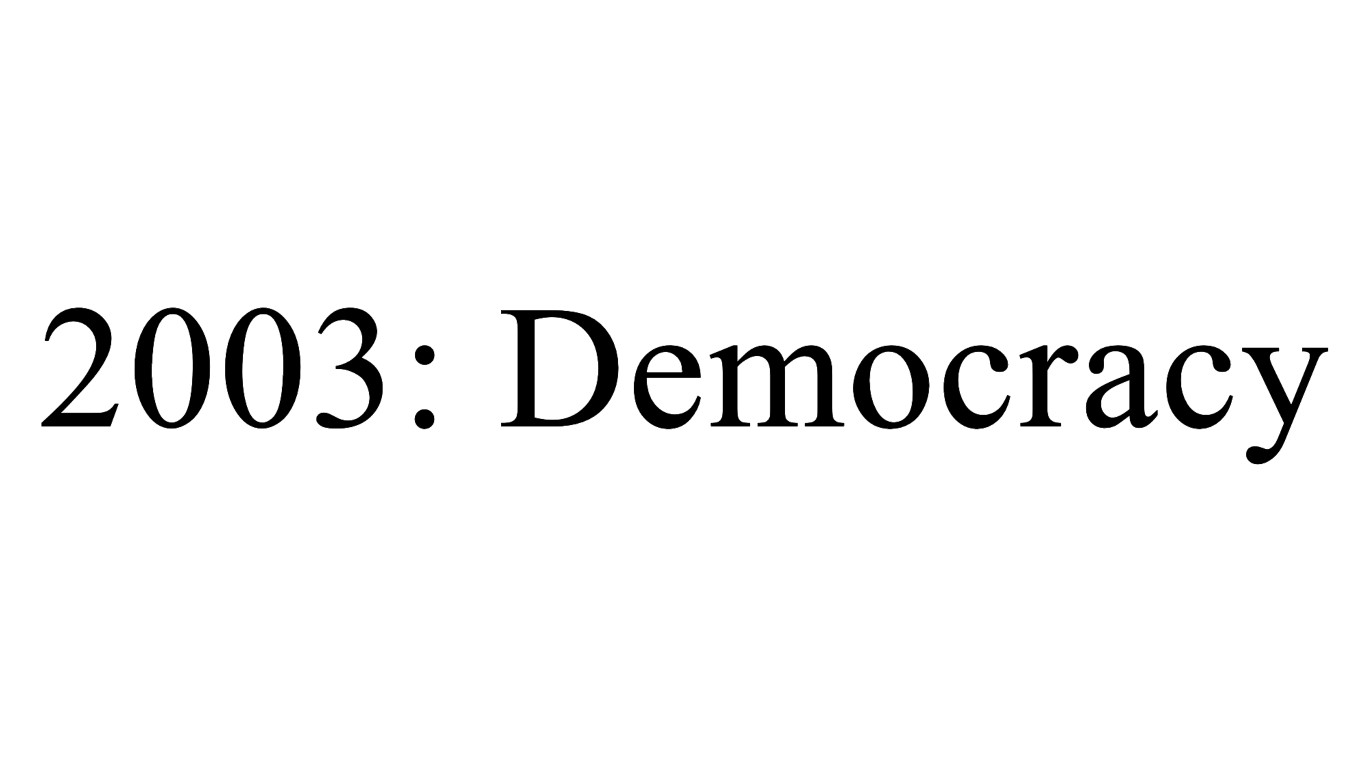
2003: Democracy
> Part of speech: Noun
> Definition: State governed by the people or by officials elected by the people.
[in-text-ad]
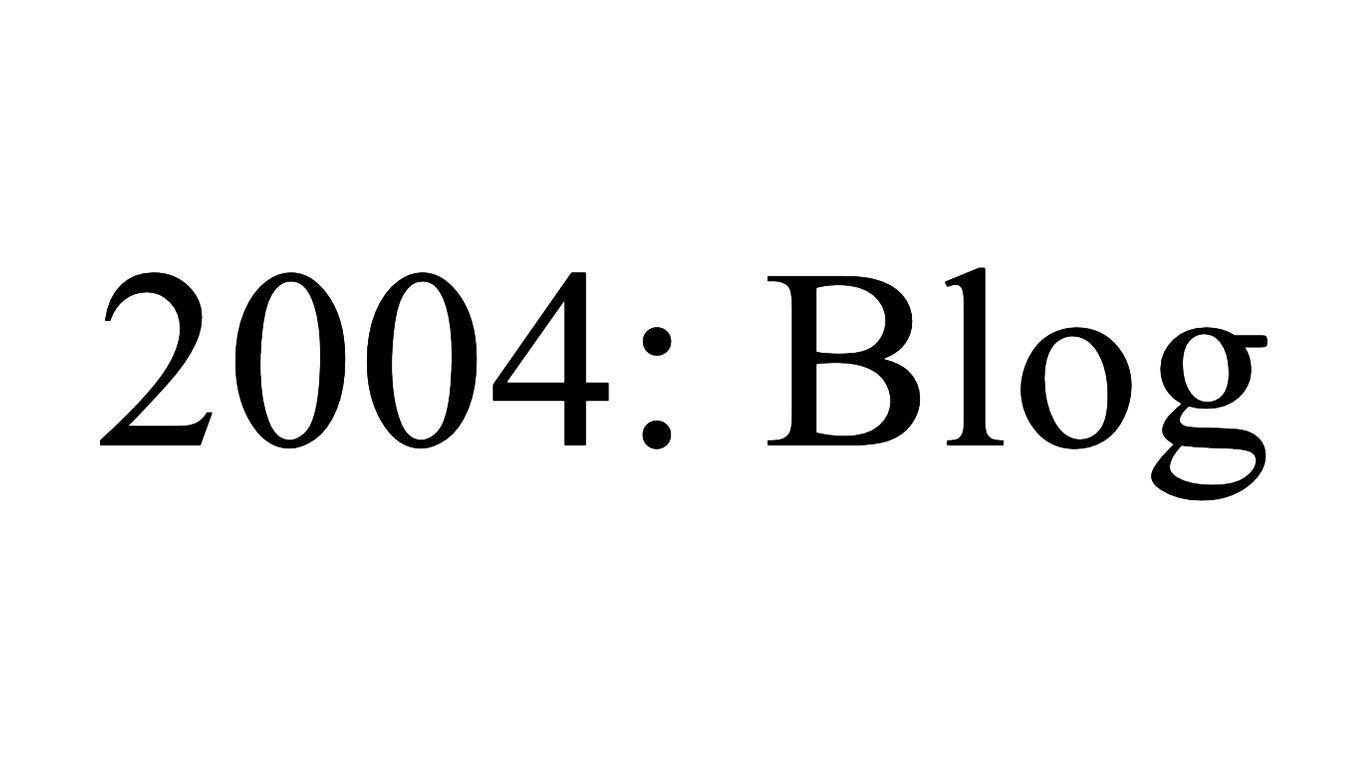
2004: Blog
> Part of speech: Noun
> Definition: Online journal where the writer presents a record of activities, thoughts, or beliefs.
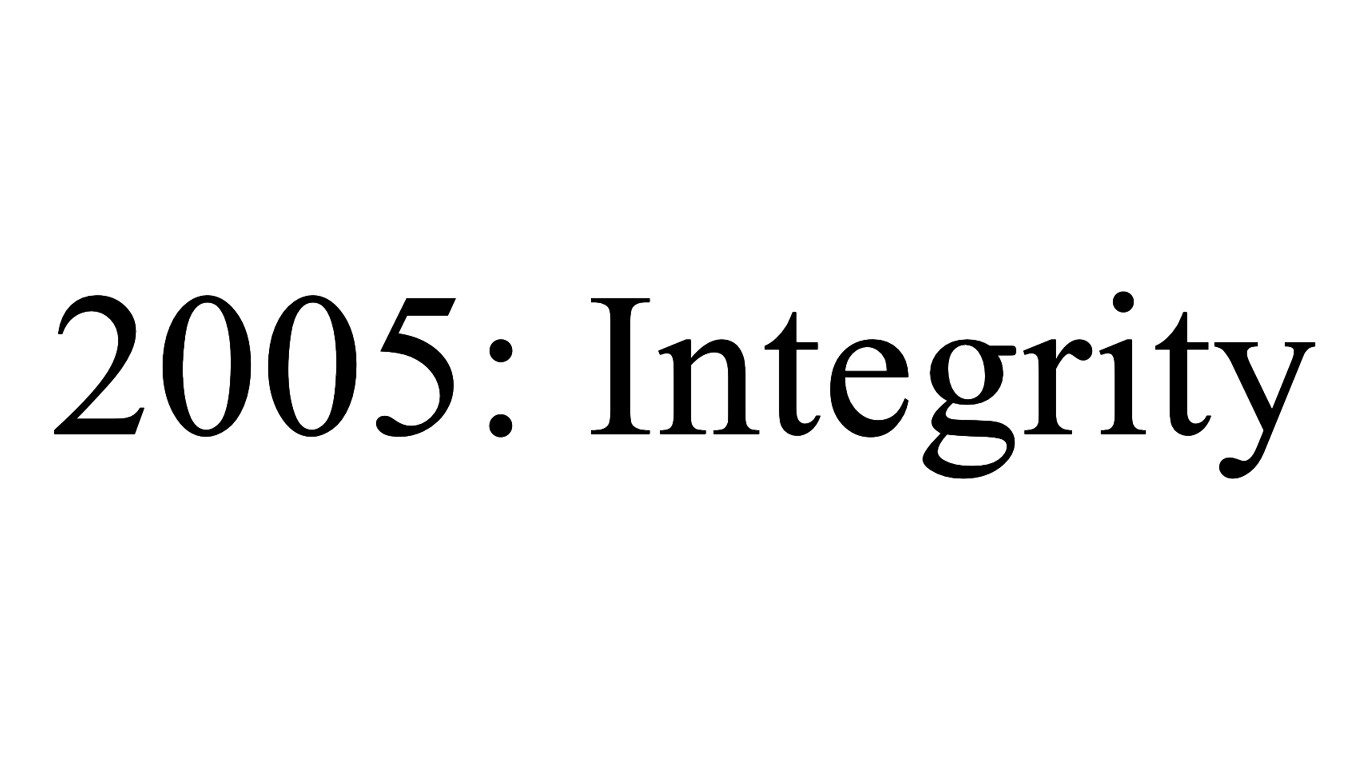
2005: Integrity
> Part of speech: Noun
> Definition: Adherence to moral or ethic principles; incorruptibility.
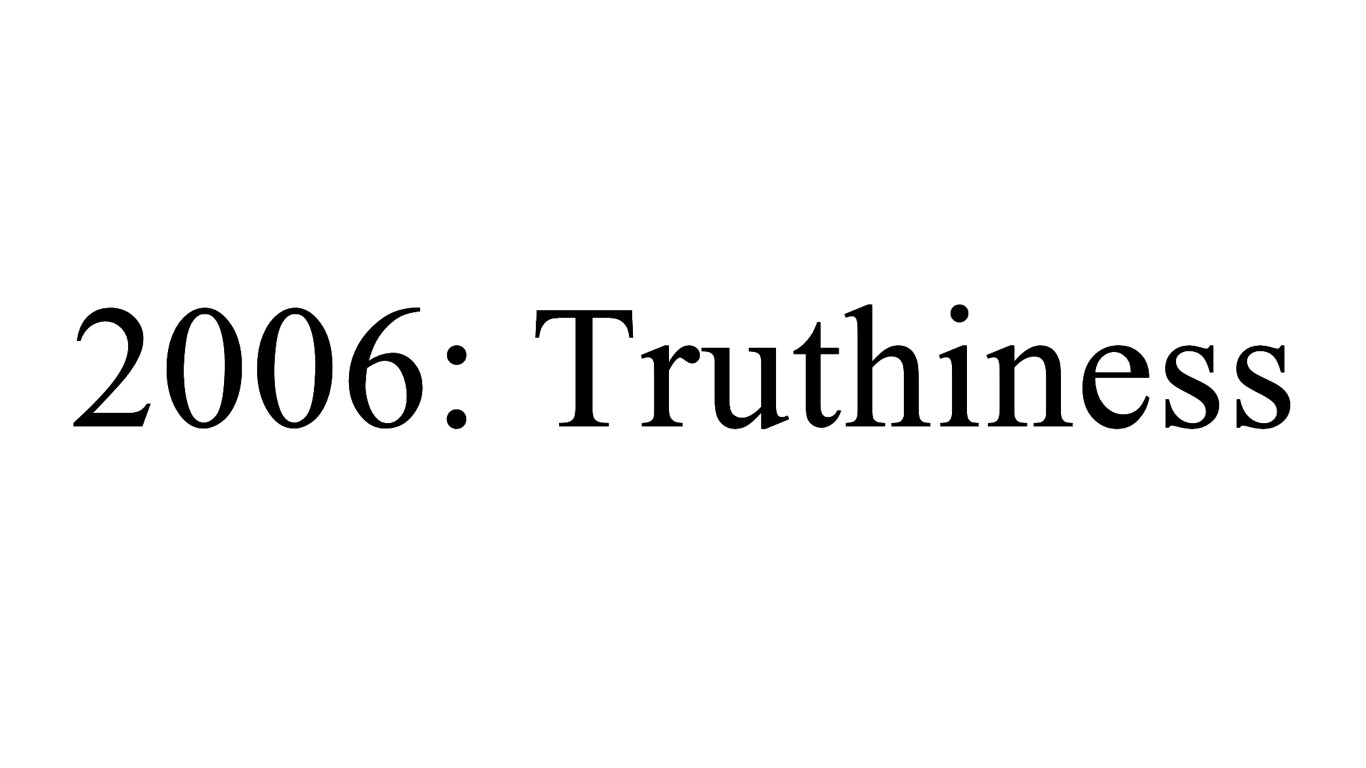
2006: Truthiness
> Part of speech: Noun
> Definition: Truth coming from the gut, not books; preferring to believe what you wish to believe, rather than what is known to be true.
[in-text-ad-2]
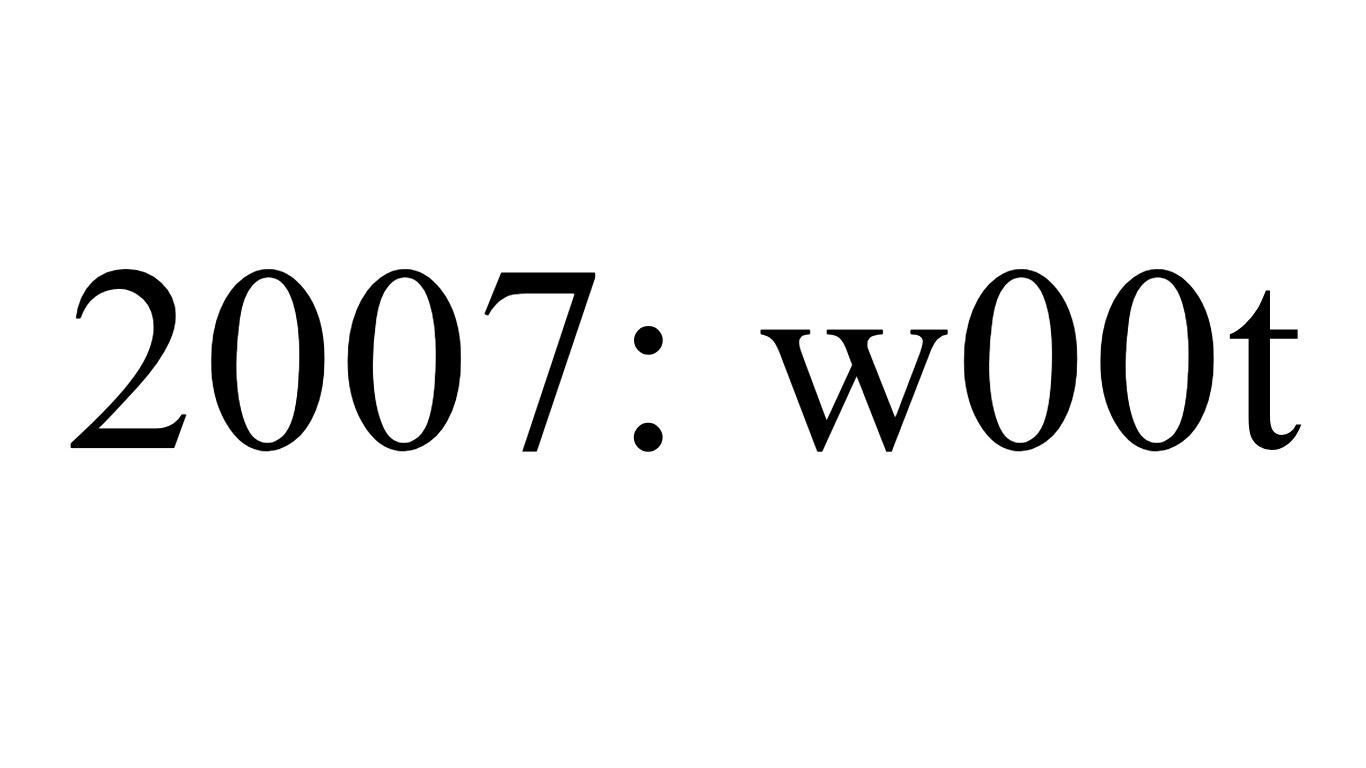
2007: w00t
> Part of speech: Interjection
> Definition: Expressing joy.
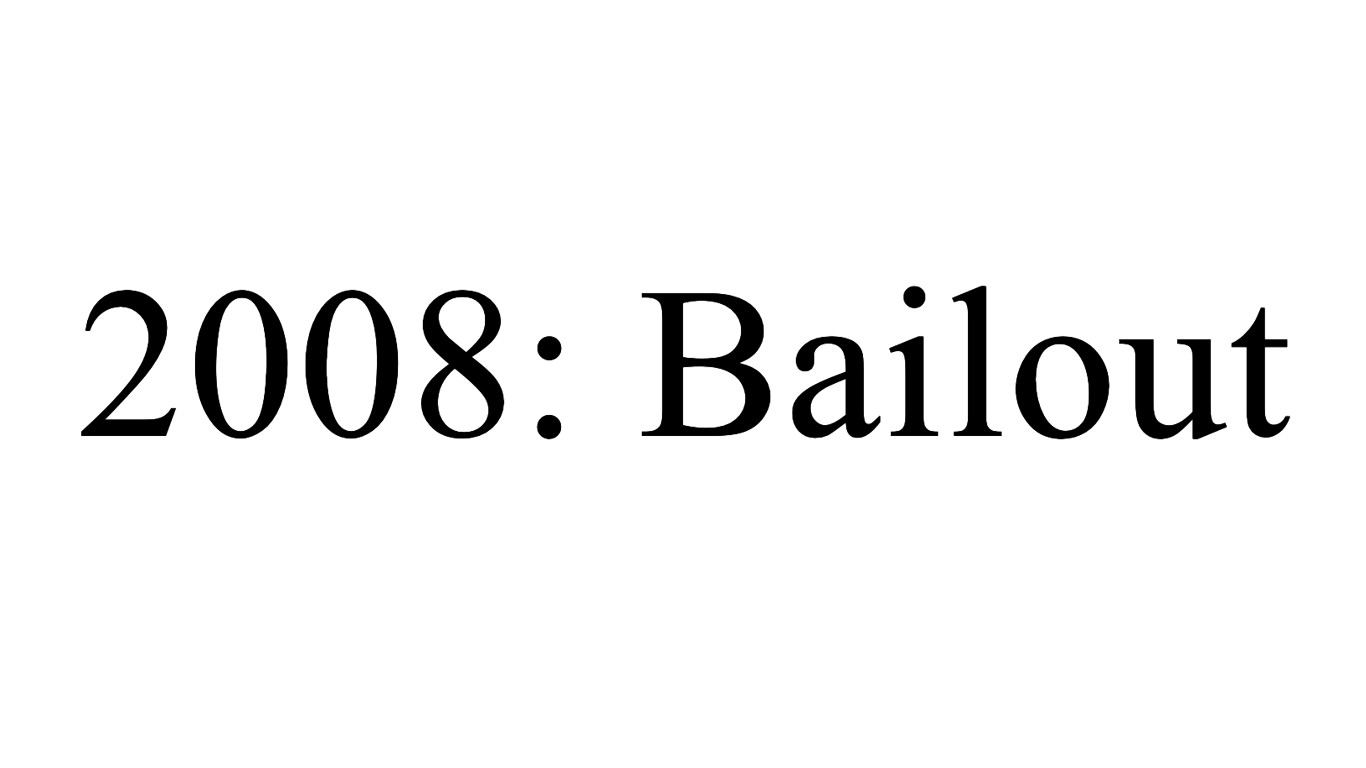
2008: Bailout
> Part of speech: Noun
> Definition: A rescue from financial distress.
[in-text-ad]
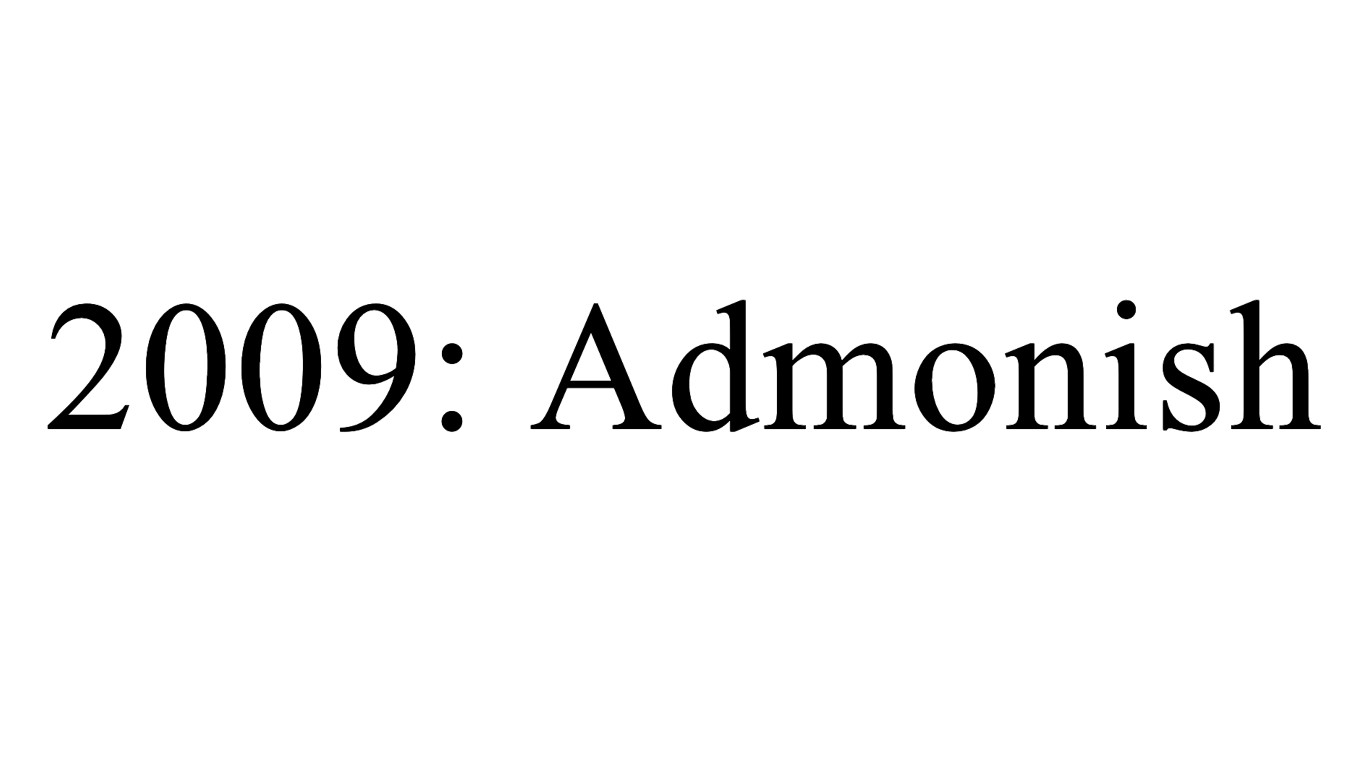
2009: Admonish
> Part of speech: Verb
> Definition: To express warning or disapproval to, especially in a gentle, earnest, or solicitous manner.
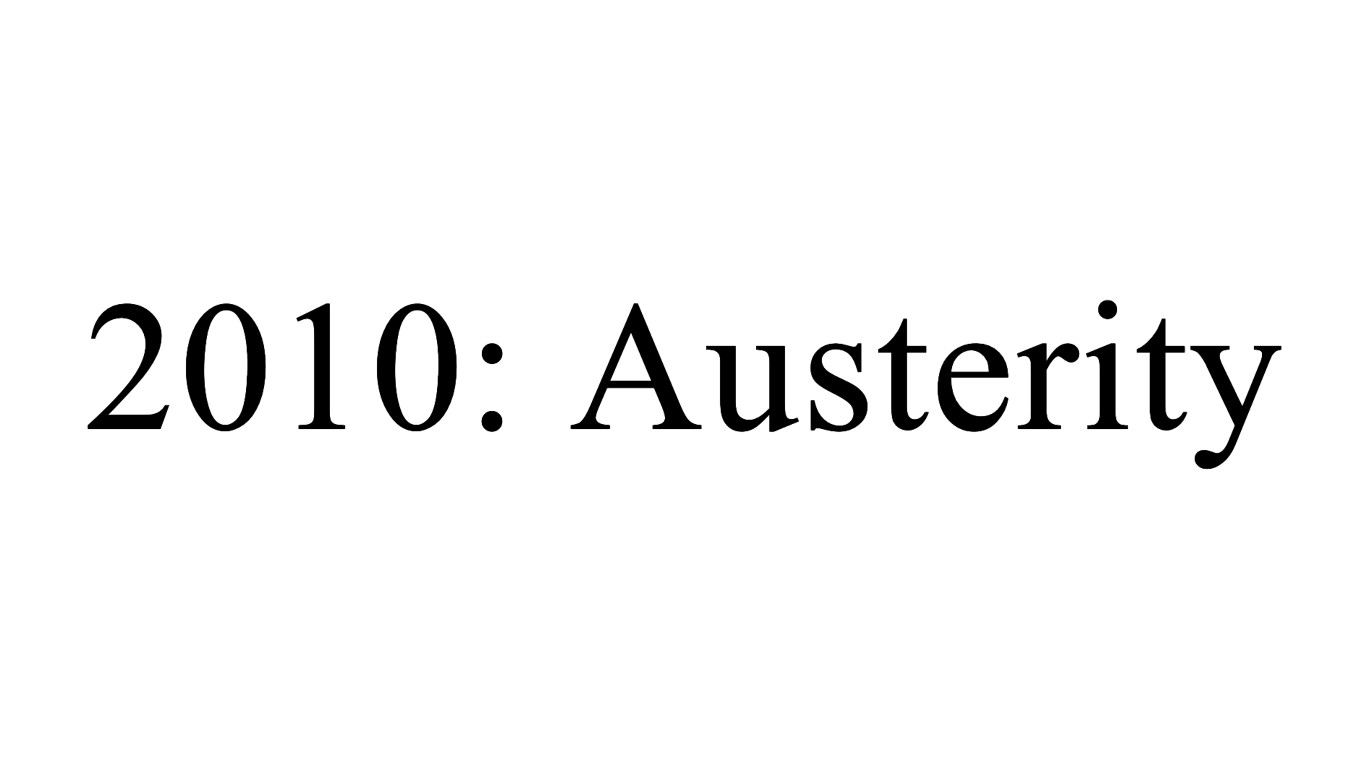
2010: Austerity
> Part of speech: Noun
> Definition: Severity of manners or life; extreme rigor or strictness; harsh discipline.
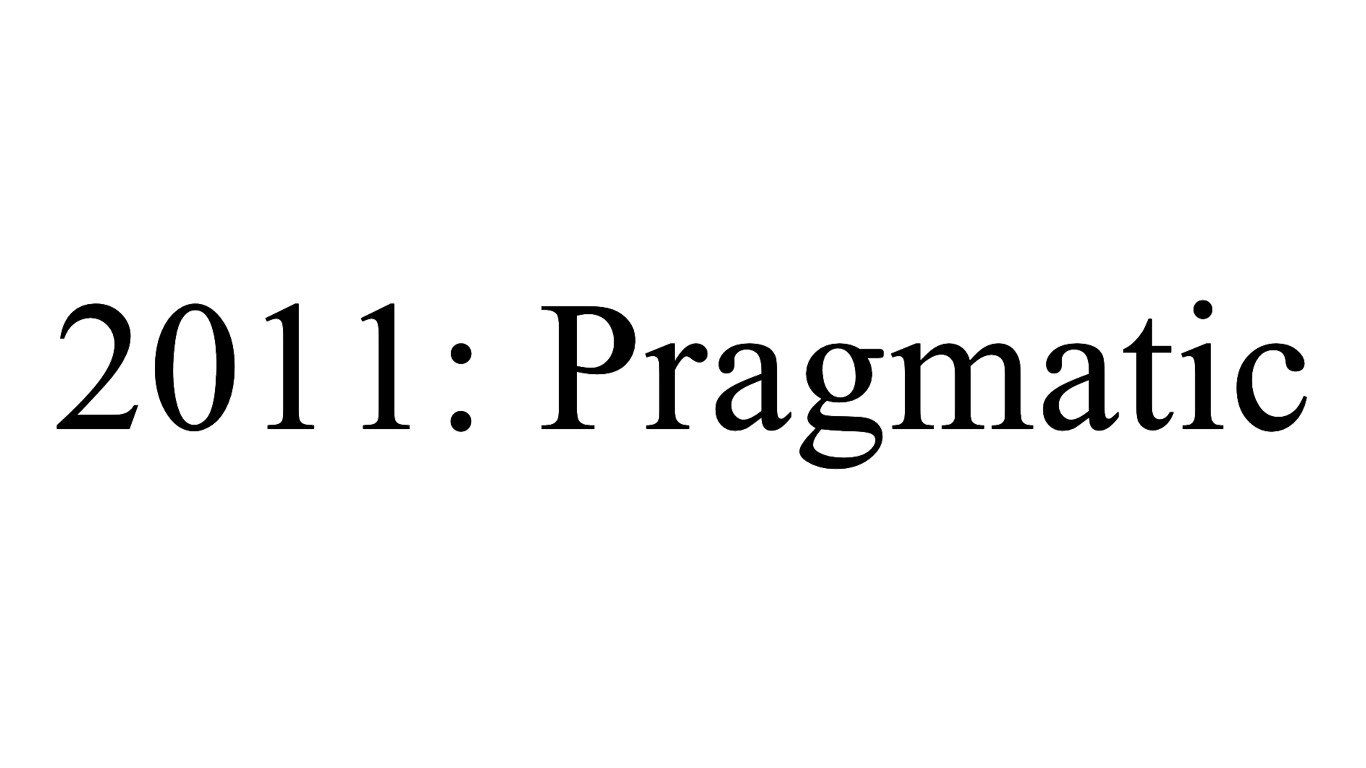
2011: Pragmatic
> Part of speech: Adjective
> Definition: Practical, concerned with making decisions and actions that are useful in practice, not just theory.
[in-text-ad-2]
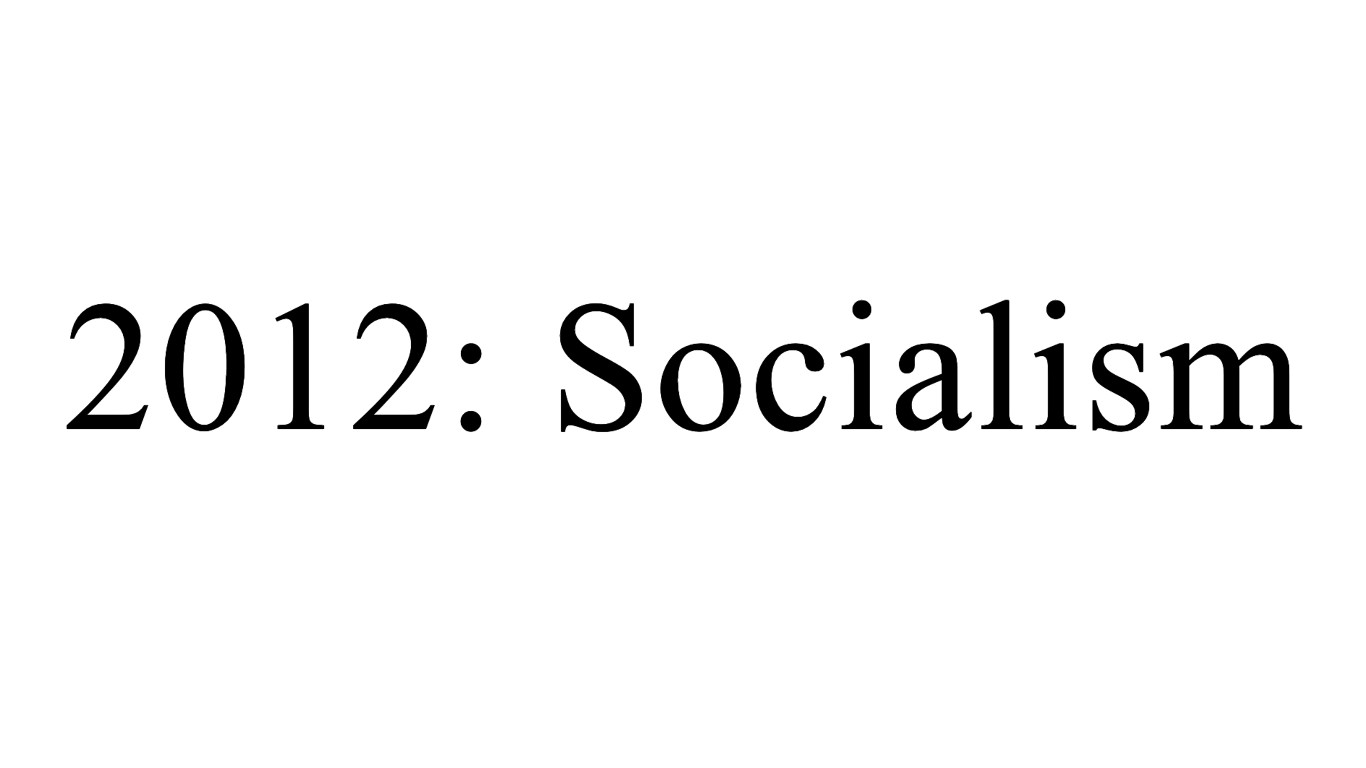
2012: Socialism (tie)
> Part of speech: Noun
> Definition: Any of various economic and political philosophies that support social equality, collective decision-making, distribution of income based on contribution, and public ownership of productive capital and natural resources, as advocated by socialists.
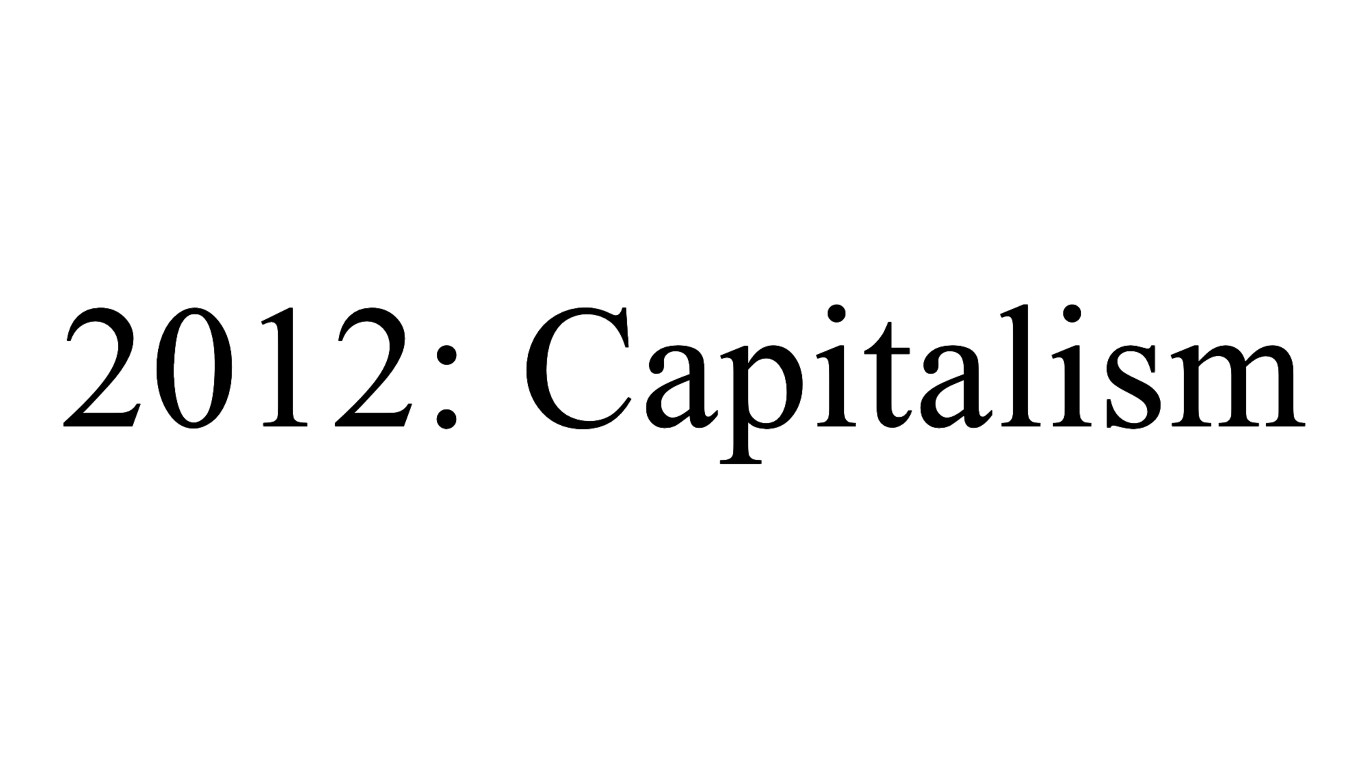
2012: Capitalism (tie)
> Part of speech: Noun
> Definition: A socio-economic system based on private property rights, including the private ownership of resources or capital, with economic decisions made largely through the operation of a market unregulated by the state.
[in-text-ad]
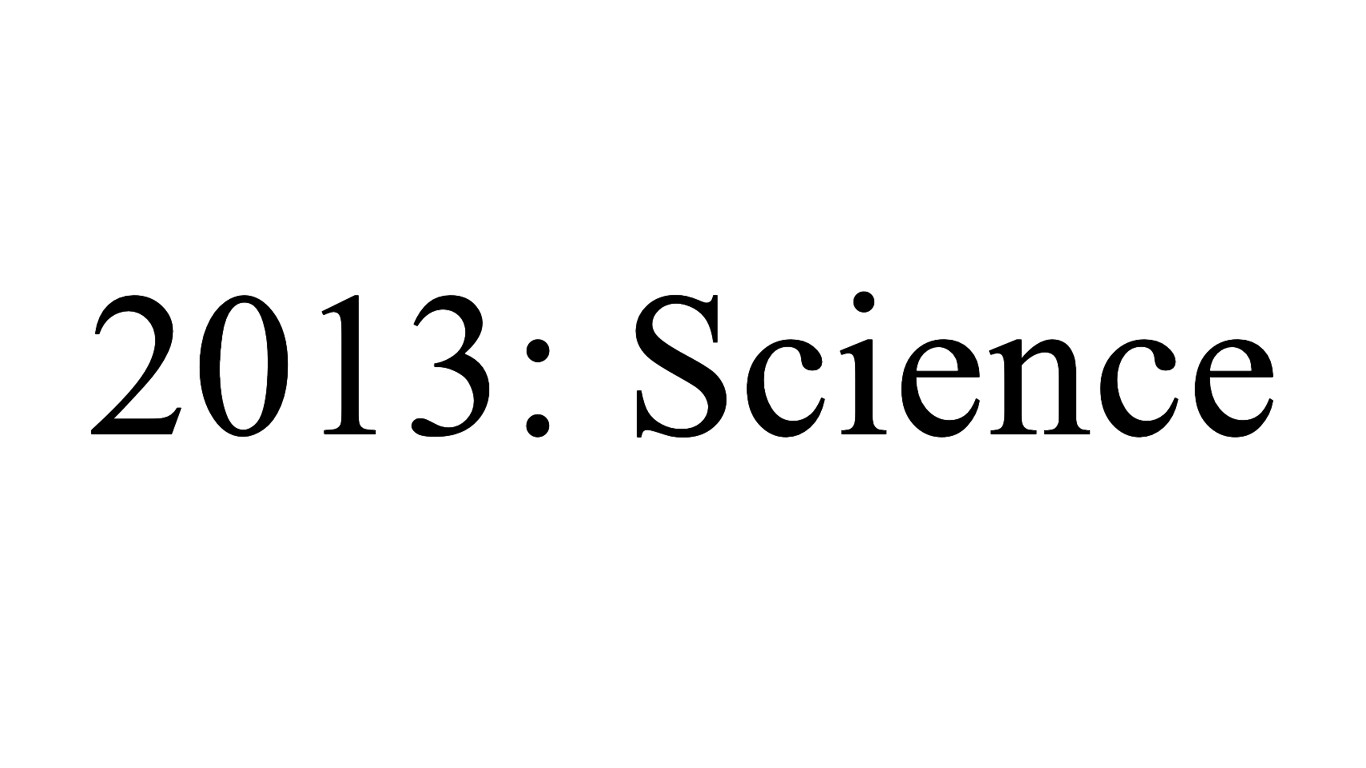
2013: Science
> Part of speech: Noun
> Definition: Knowledge about or study of the natural world based on facts learned through experiments and observation.
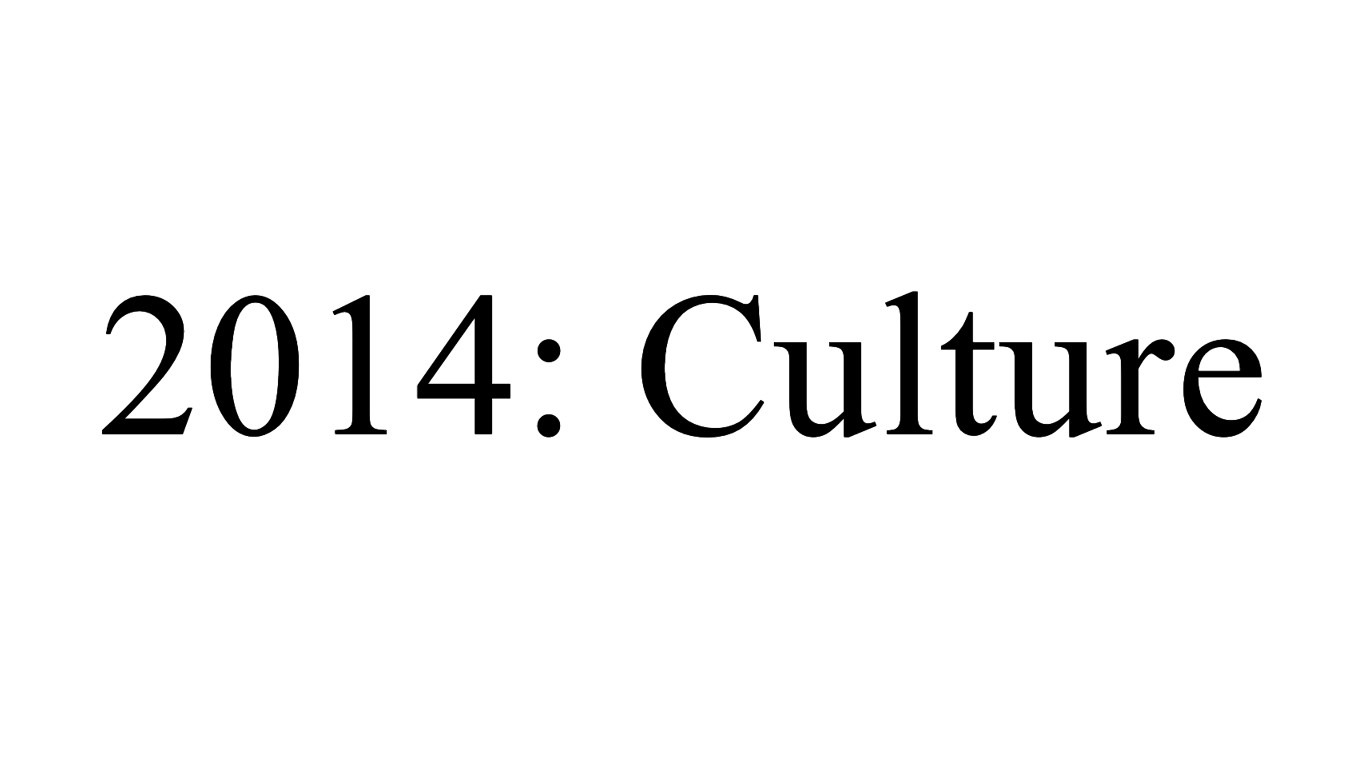
2014: Culture
> Part of speech: Noun
> Definition: The beliefs, customs, arts, etc., of a particular society, group, place, or time.

2015: -ism
> Part of speech: Suffix
> Definition: A suffix that forms abstract nouns of action, state, condition, doctrine.
[in-text-ad-2]
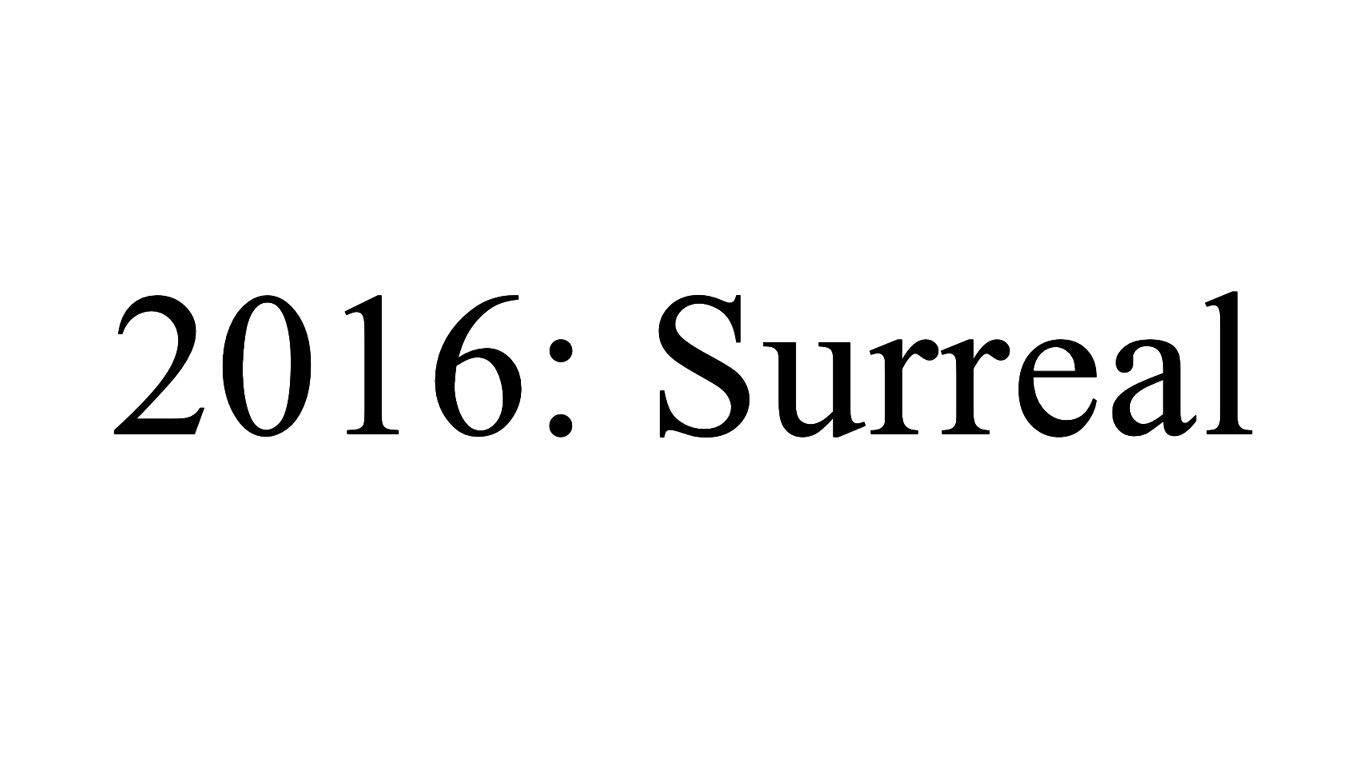
2016: Surreal
> Part of speech: Adjective
> Definition: Marked by the intense irrational reality of a dream.
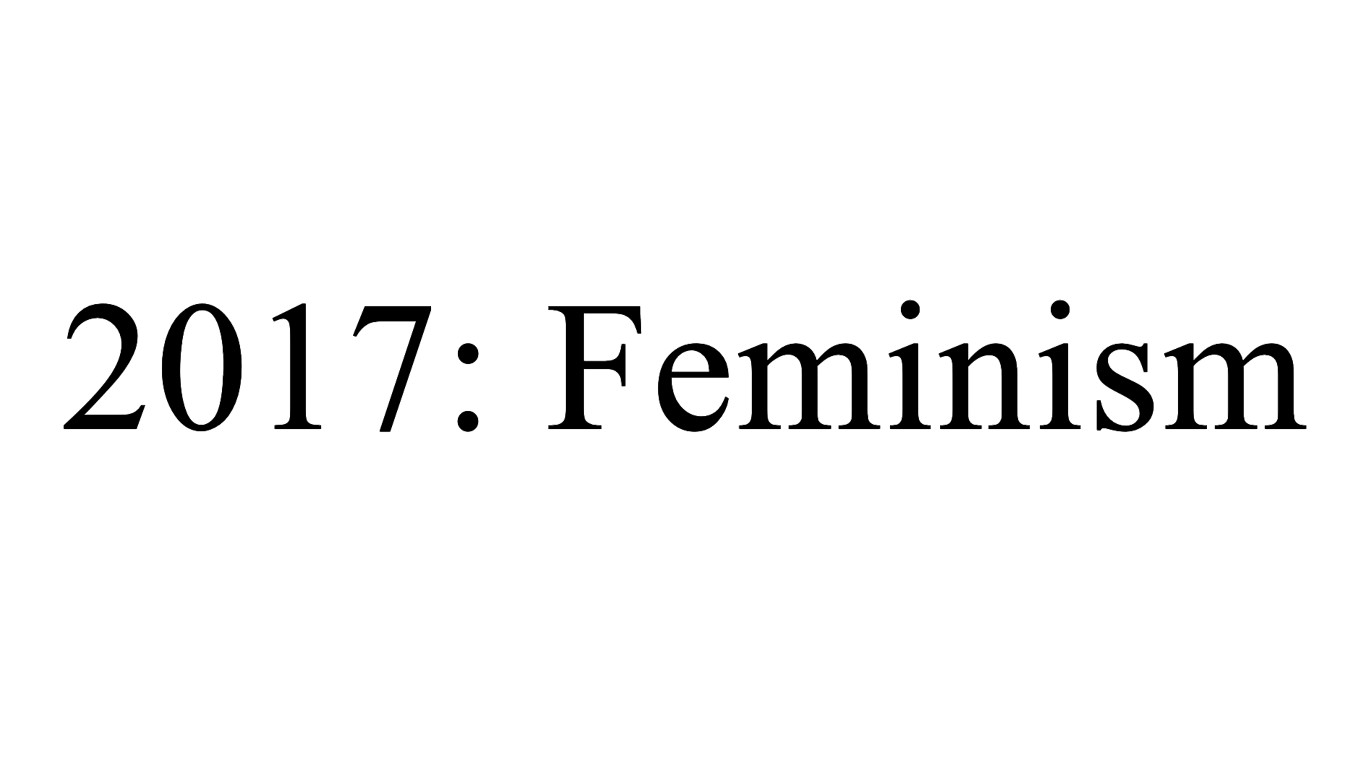
2017: Feminism
> Part of speech: Noun
> Definition: The theory of the political, economic, and social equality of the sexes.
[in-text-ad]
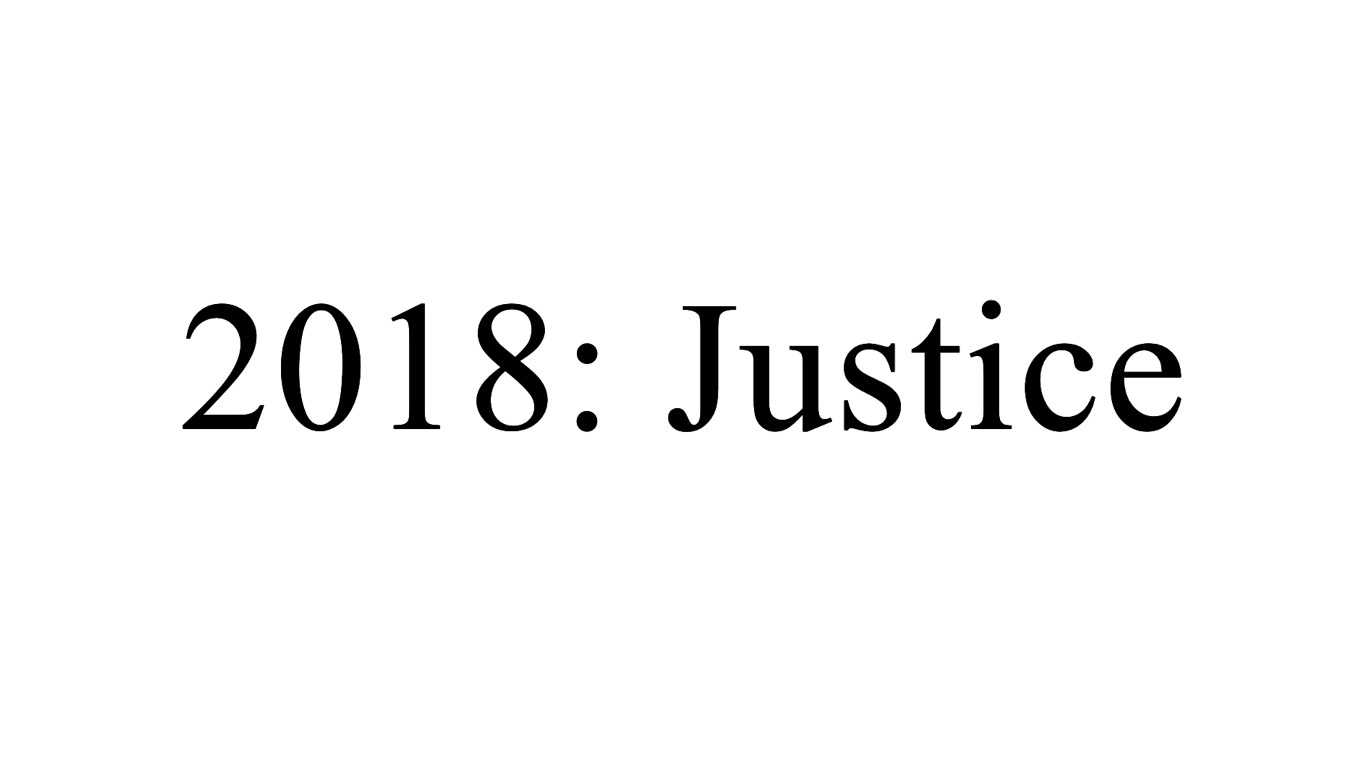
2018: Justice
> Part of speech: Noun
> Definition: The maintenance or administration of what is just, especially by the impartial adjustment of conflicting claims or the assignment of merited rewards or punishments.
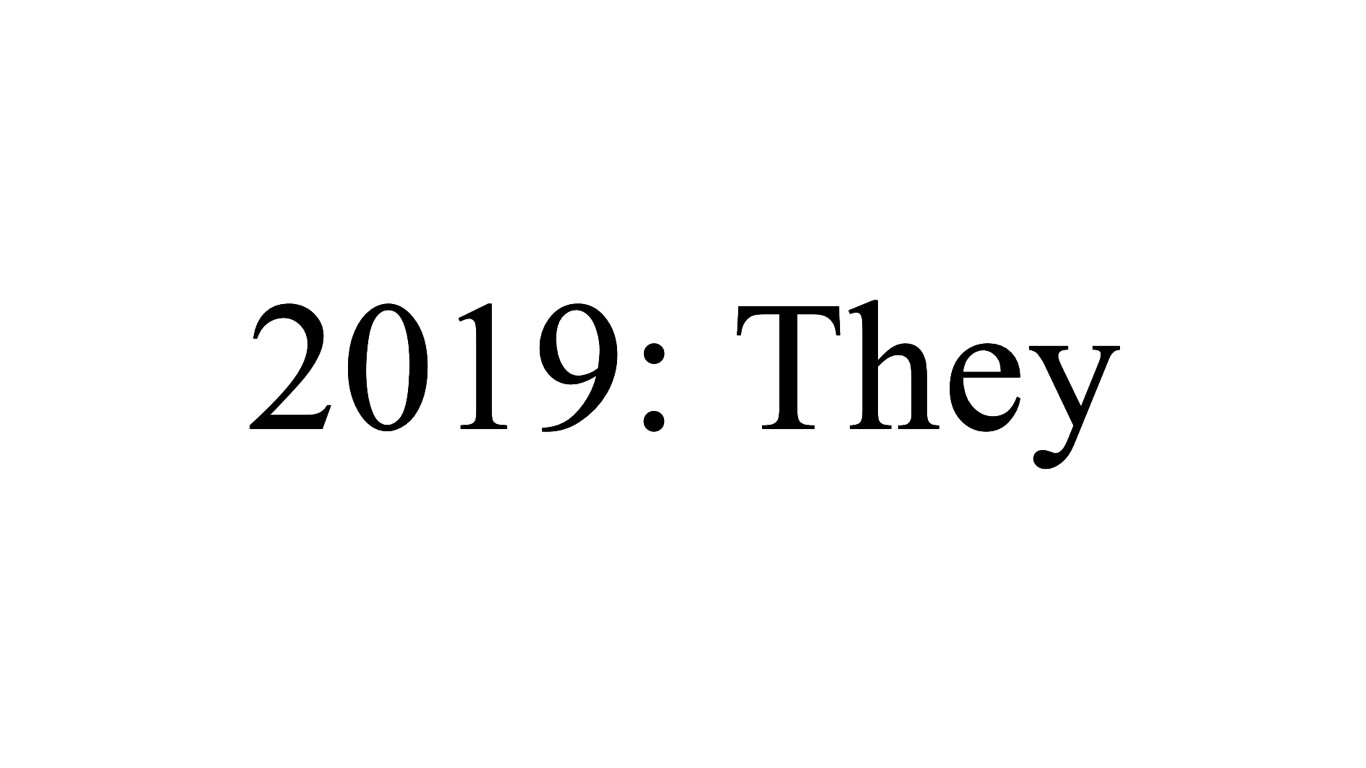
2019: They
> Part of speech: Pronoun
> Definition: Used to refer to a single person whose gender is intentionally not revealed, or used to refer to a single person whose gender identity is nonbinary.
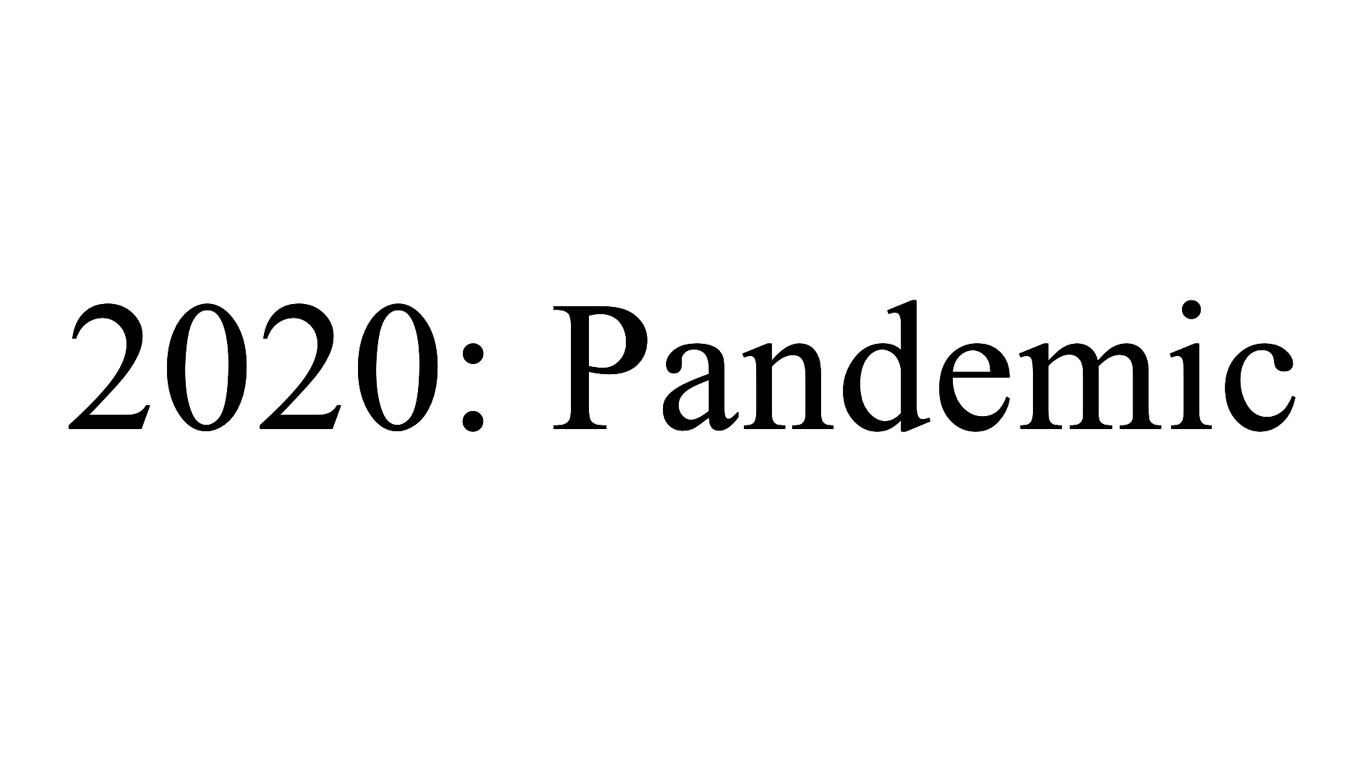
2020: Pandemic
> Part of speech: Noun
> Definition: An outbreak of a disease that occurs over a wide geographic area (such as multiple countries or continents) and typically affects a significant proportion of the population.
[in-text-ad-2]
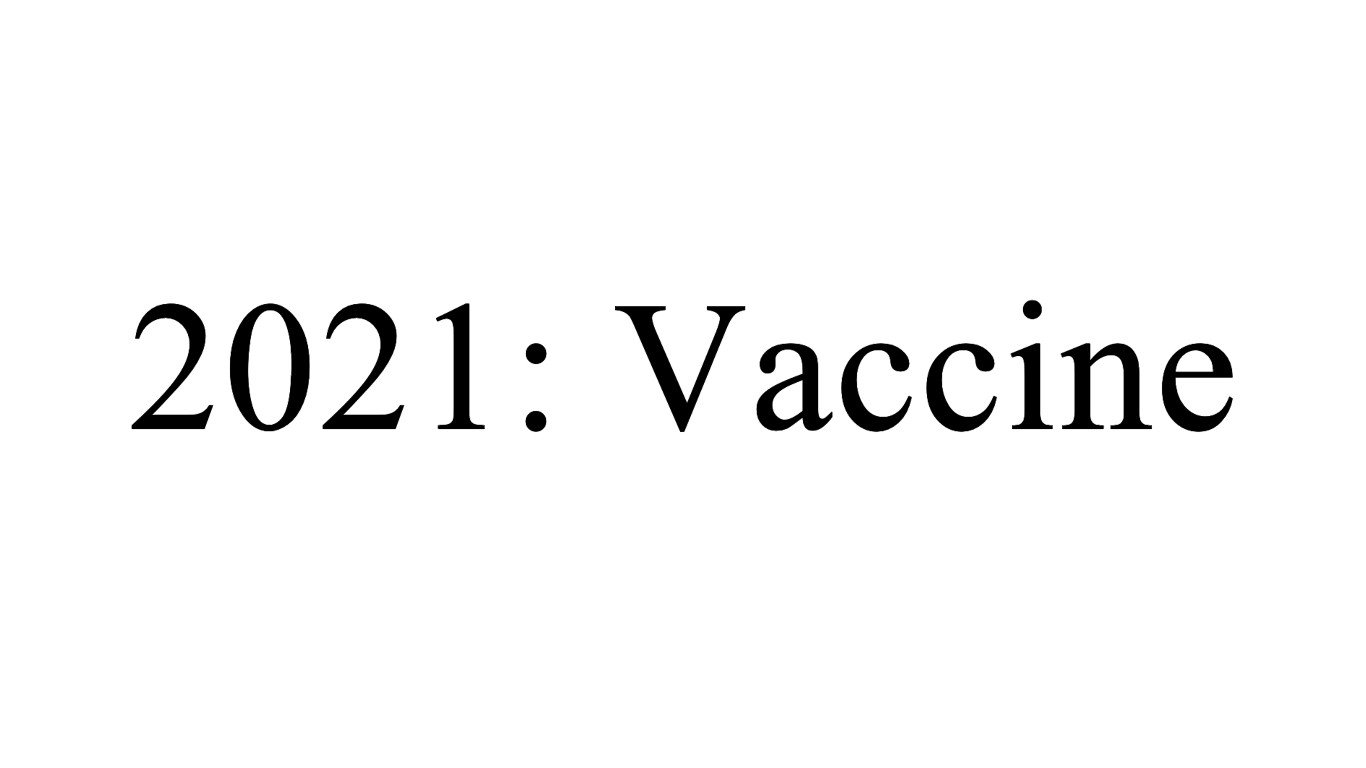
2021: Vaccine
> Part of speech: Noun
> Definition: a preparation that is administered (as by injection) to stimulate the body’s immune response against a specific infectious agent or disease.
The Average American Has No Idea How Much Money You Can Make Today (Sponsor)
The last few years made people forget how much banks and CD’s can pay. Meanwhile, interest rates have spiked and many can afford to pay you much more, but most are keeping yields low and hoping you won’t notice.
But there is good news. To win qualified customers, some accounts are paying almost 10x the national average! That’s an incredible way to keep your money safe and earn more at the same time. Our top pick for high yield savings accounts includes other benefits as well. You can earn up to 3.80% with a Checking & Savings Account today Sign up and get up to $300 with direct deposit. No account fees. FDIC Insured.
Click here to see how much more you could be earning on your savings today. It takes just a few minutes to open an account to make your money work for you.
Our top pick for high yield savings accounts includes other benefits as well. You can earn up to 4.00% with a Checking & Savings Account from Sofi. Sign up and get up to $300 with direct deposit. No account fees. FDIC Insured.
Thank you for reading! Have some feedback for us?
Contact the 24/7 Wall St. editorial team.
 24/7 Wall St.
24/7 Wall St. 24/7 Wall St.
24/7 Wall St. 24/7 Wall St.
24/7 Wall St. 24/7 Wall St.
24/7 Wall St.